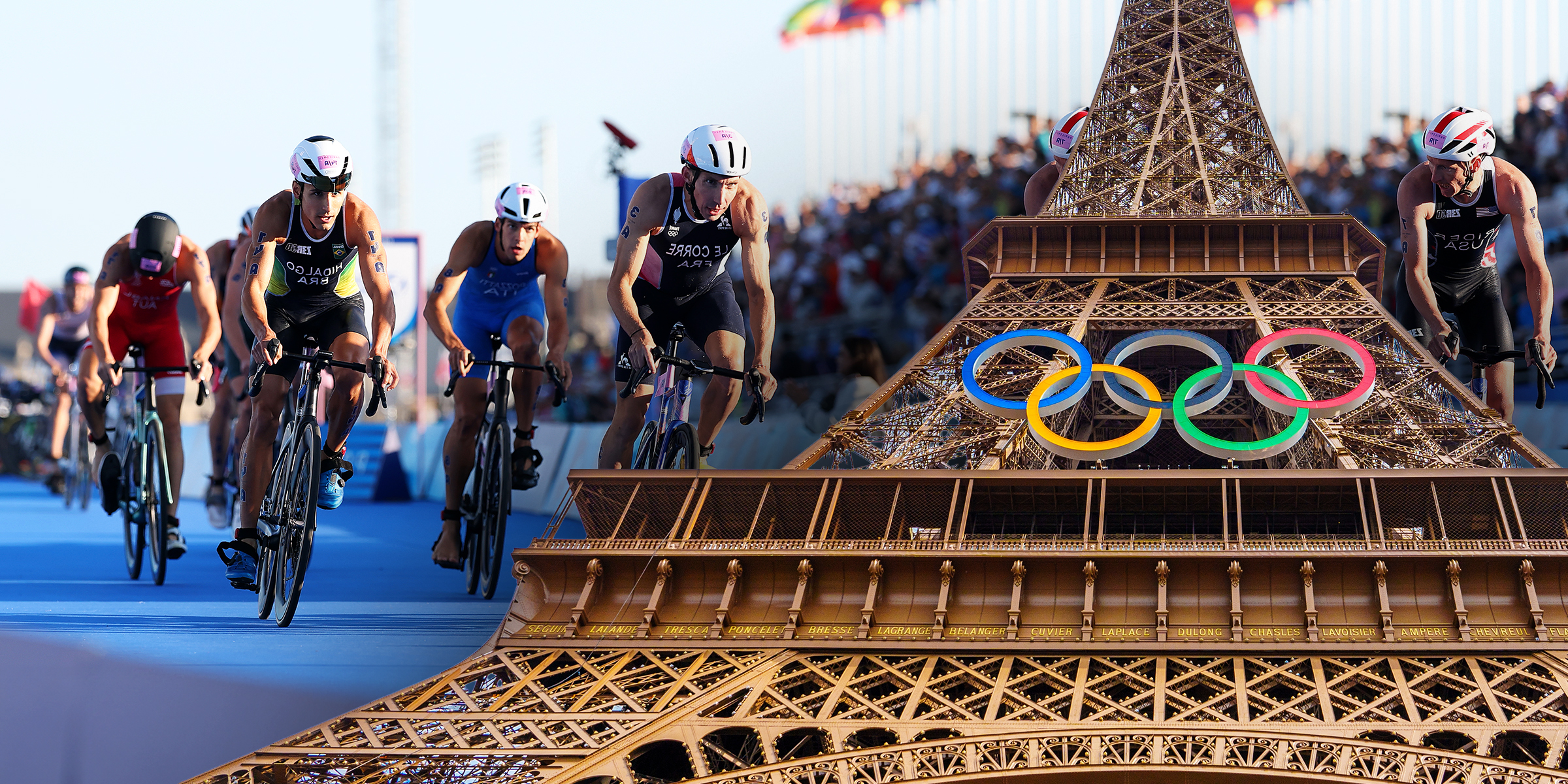
Olympic Village Secrets: The Most Surprising Rules Olympic Athletes' Must Follow
- The Olympics are upon us, and the Olympic Village is the bustling behind-the-scenes hub where athletes from around the globe live and prepare.
- However, did you know it's governed by a surprising set of rules?
- Discover the fascinating world of the 2024 Paris Olympic Village and uncover the regulations that ensure athletes' safety, focus, and well-being.
The 2024 Paris Olympics captivated the world with stunning athletic feats and unforgettable moments. However, while the spotlight shone on the competitions, the Olympic Village quietly buzzed with activity and order.
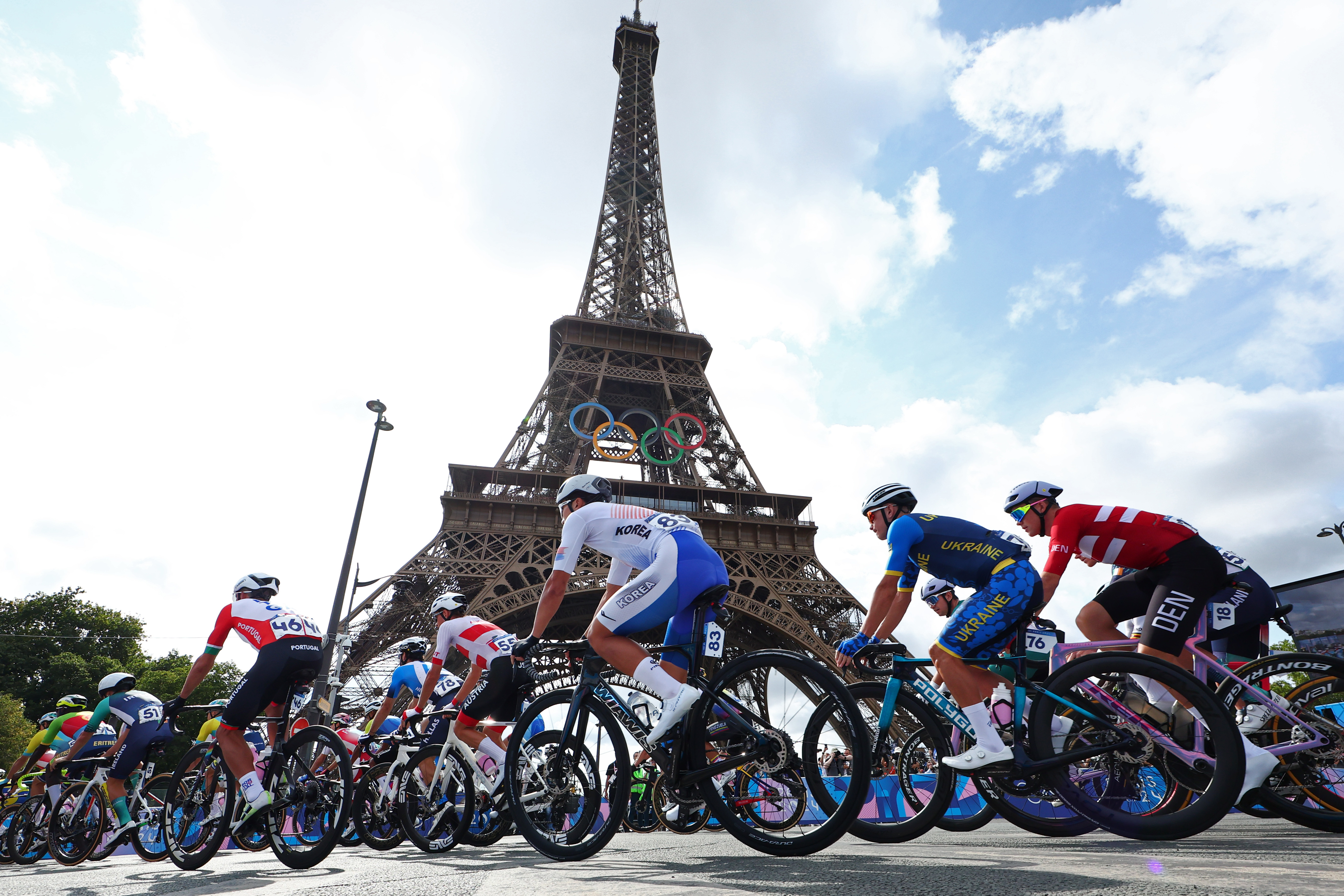
Cyclists riding by the Eiffel Tower during the Men's Road Race on day eight of the Olympic Games Paris 2024 on August 3 in France. | Source: Getty Images
From family visitation limits to customized beds and social media guidelines, explore the behind-the-scenes world of the Olympic Village and discover the fascinating regulations that kept this vibrant hub ticking during the Olympics.
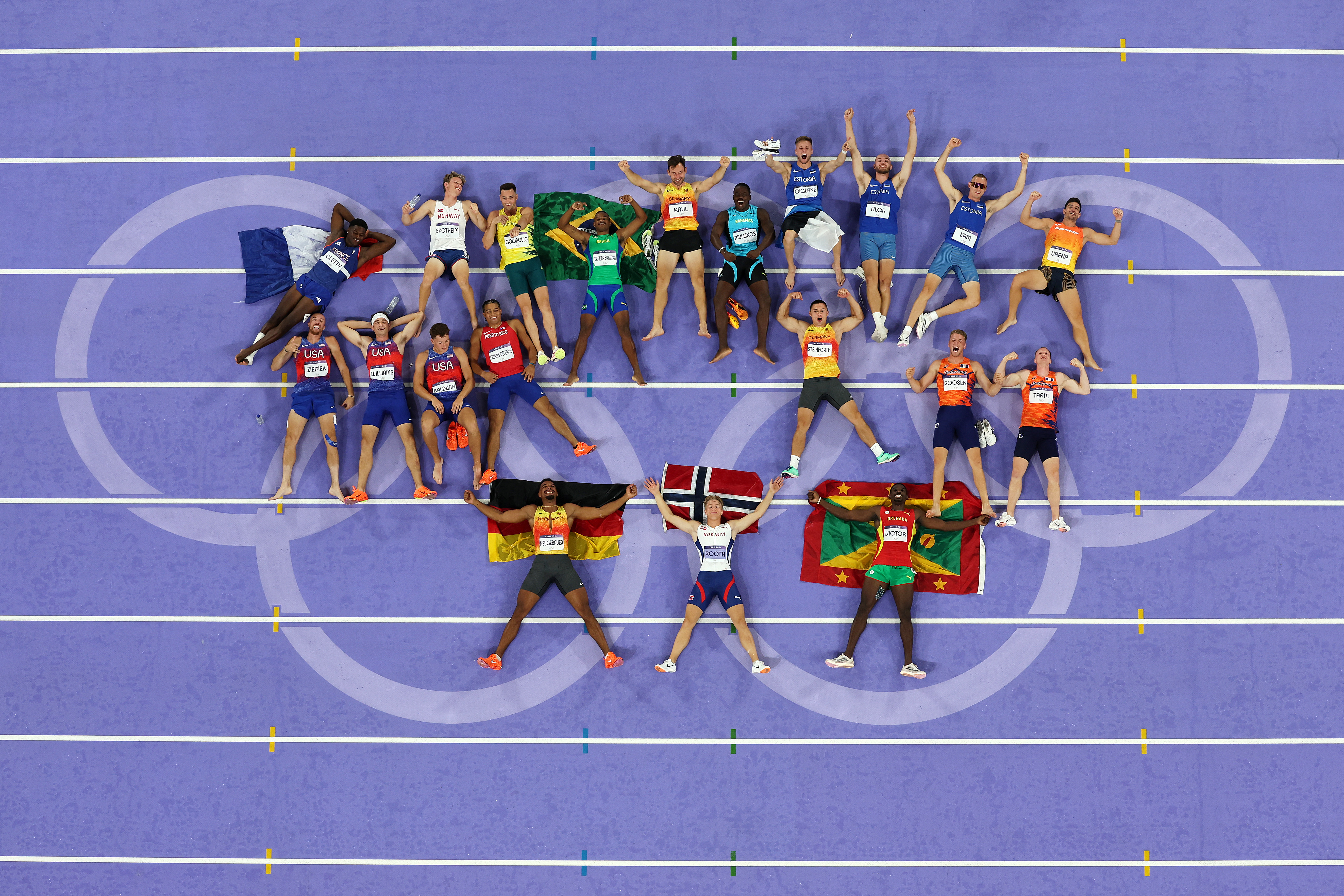
Athletes on day eight of the Olympic Games Paris 2024 on August 3 in France. | Source: Getty Images
Families Weren't Allowed to Visit the Olympic Village
Every delegation managed entry into the Olympic Village differently during the 2024 Paris Olympics. However, Team USA's Olympic Village Director, Daniel Smith, revealed that Team USA only allowed athletes and select staff into its quarters.
"Based on your team size, you're allotted a certain amount of accreditations," he explained. Smith said the accreditations were typically distributed to team leaders, staff, medical personnel, and sometimes security.
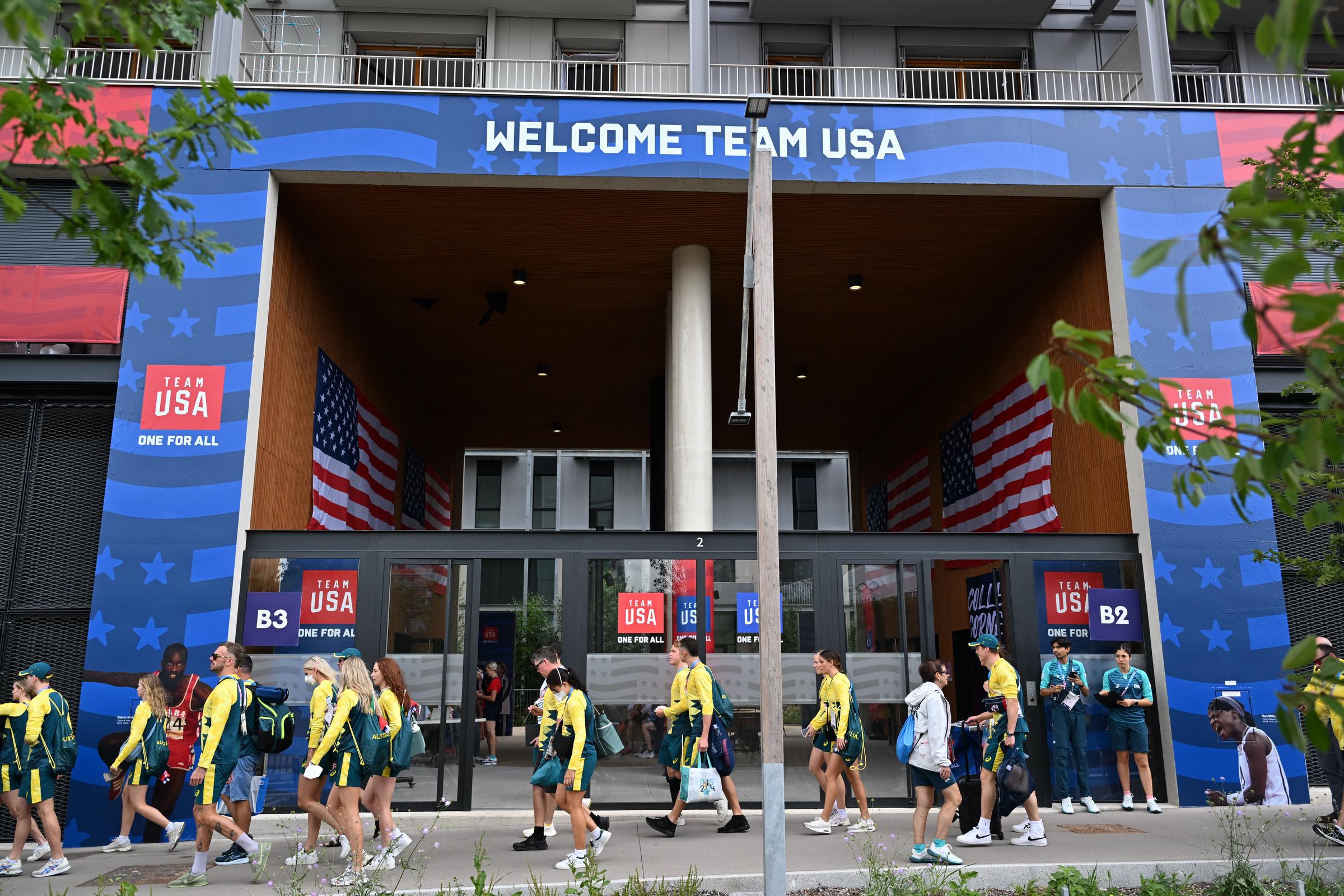
USA's residence at the 2024 Paris Olympic Village. | Source: Getty Images
He added, "They want all their coaches in, but we don't have the space for them."
"Our primary goal is to create a healthy and safe environment focused on high performance. Our primary function is to make it as distraction-free as possible," Smith explained the reasoning behind that decision.
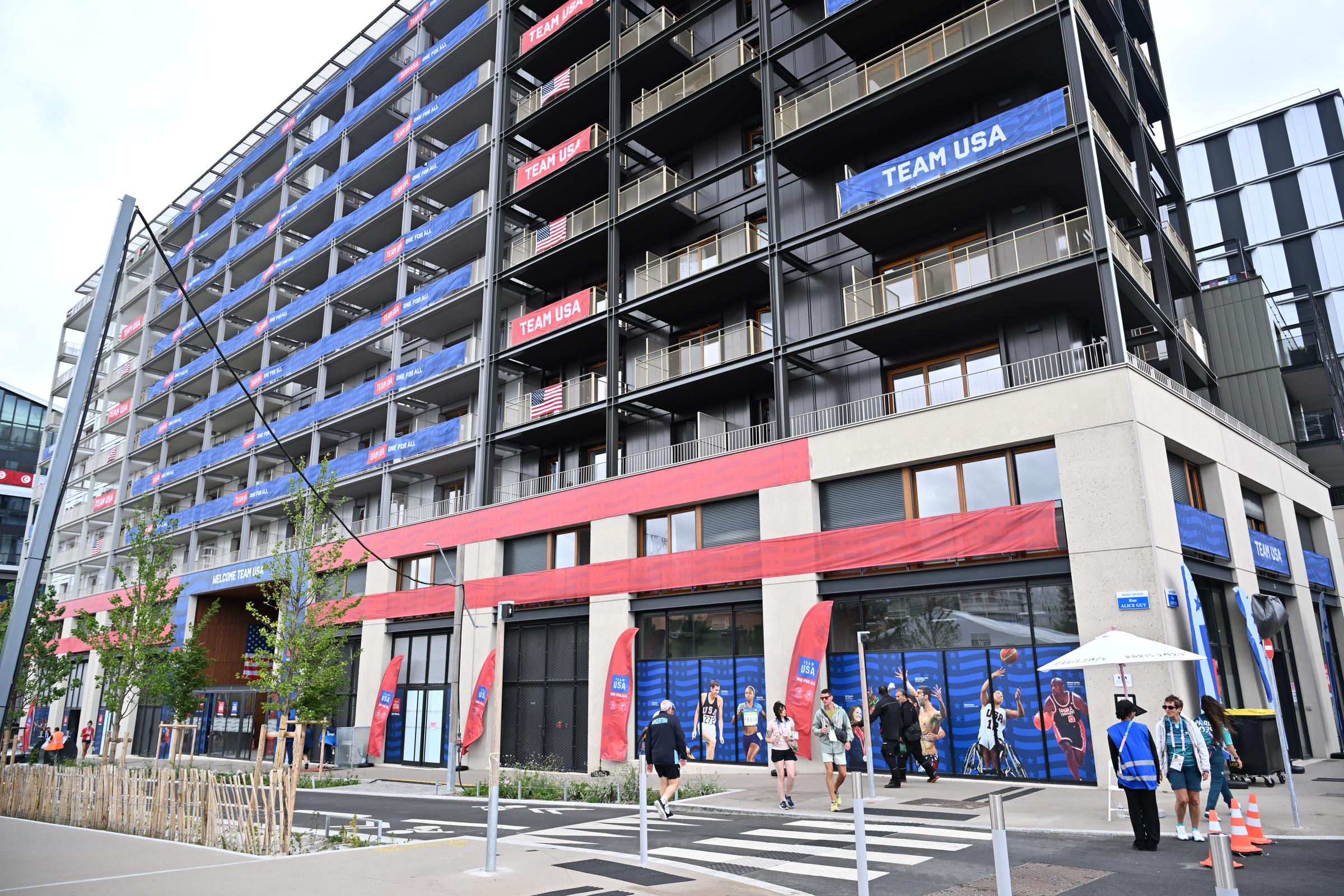
USA's residence at the 2024 Paris Olympic Village. | Source: Getty Images
If athletes wanted to connect with their family and friends, they were allowed to — just not in the Olympic Village. "Athletes can leave the Village and go out to meet with their families out in the city of Paris. But families are not allowed to come into the village," he clarified.
There was one exception to the family and friends access limitation in the Olympic Village, and that was for nursing athletes, who were allowed to bring their infants into the Village Nursery.
"There's a specific nursery that's run by P&G, and they have a specific allotted time where they can go in and breastfeed," Smith explained. According to the official Olympics website, Pampers offered access to high-quality diapers and wipes, as well as an environment for playtime and family bonding.
Athletes Were Allowed to Customize Their Mattresses
The cardboard beds that caused a stir during the 2020 Tokyo Games returned for the 2024 Summer Olympics. According to Smith, "These beds are hard as rock. They're extremely rigid. They're essentially three pieces of cardboard that fit together, and many of them include cardboard bed extensions."
Given the firmness of the beds, athletes were allowed to customize their mattresses to better suit their sleeping preferences. "There's an area in the Paris 2024 Village where athletes receive guidance on how to adjust their mattresses," Smith explained.
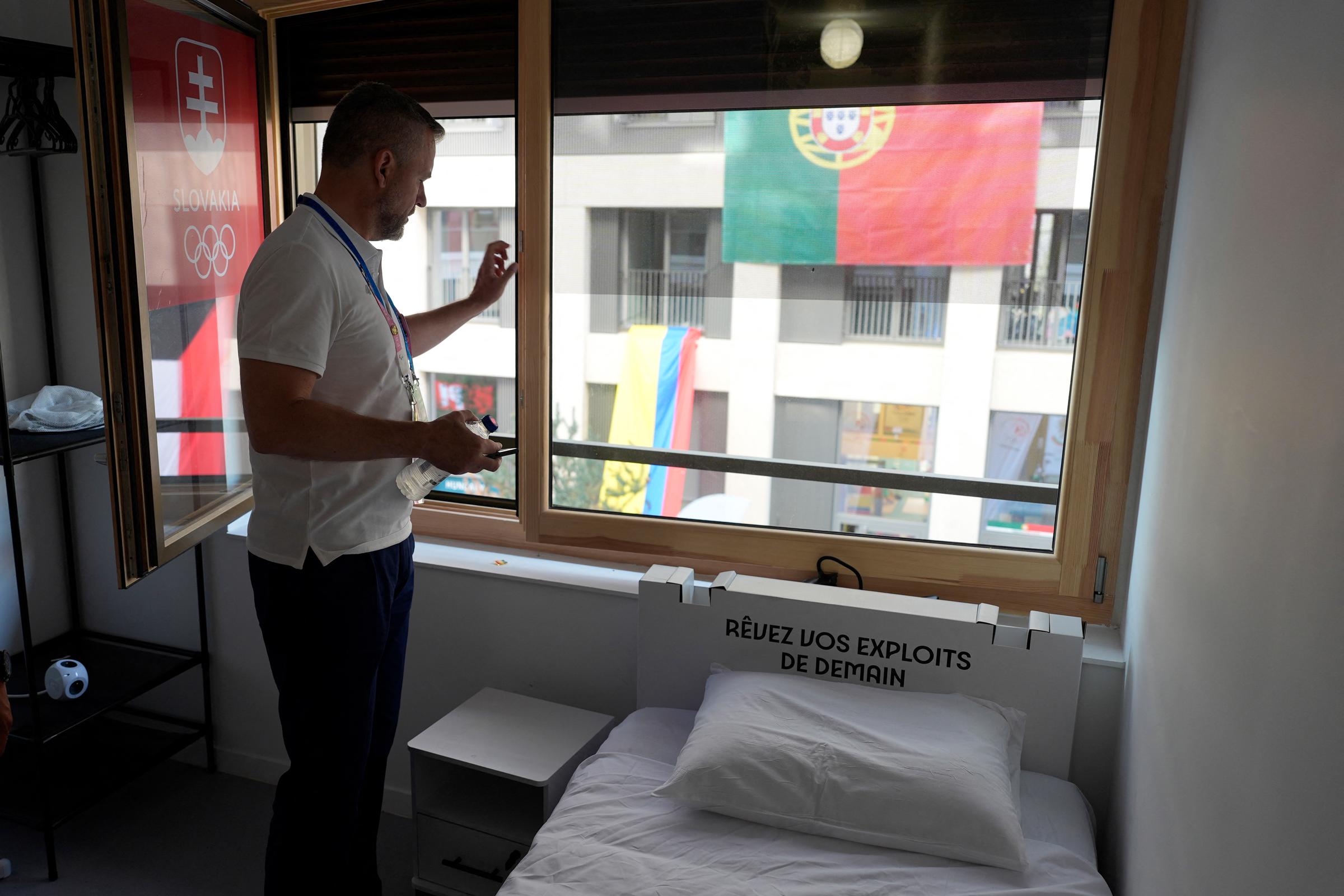
Slovakia's President Peter Pellegrini touring the Slovak house in the Olympic Village during the Paris 2024 Olympic Games in France. | Source: Getty Images
This way, athletes could adjust their mattresses to be firmer or softer according to their needs. Additionally, Team USA supported its athletes by covering the cost of mattress toppers for extra comfort.
The only exception to the standard cardboard beds was for larger athletes, particularly those in track and field events. "These athletes are bigger in size, so these beds are brought in specifically to ensure they are comfortable," Smith said.
Pets Were Not Allowed
Unfortunately for animal-loving athletes, pets were not allowed into the Olympic Village. "We tried," said Smith. According to the Team USA Olympic Village Director, this rule had nothing to do with the Paris 2024 Olympics regulations. Instead, Smith reported that it "was more due to French governmental rules around the certification of therapy dogs."
The French government's strict certification requirements for therapy dogs made it impractical to accommodate pets in the Olympic Village. This was a tough blow for athletes who relied on the companionship and support of their pets, including therapy animals.
Regulations Around Posting on Social Media
The Olympic rules and regulations encouraged athletes to share their experiences at the Games through personal social media accounts and websites. However, specific guidelines had to be followed to ensure the content aligned with Olympic values.
With some restrictions, athletes could take photos and record audio and videos within the Olympic Village. Areas such as medical stations and doping control zones were off-limits for any recording.
Moreover, athletes had to get consent before capturing content that included other residents, respecting their privacy and personal space. Posts on social media had to follow Olympic values, prohibiting any discriminatory or obscene material.
Furthermore, athletes could not share commercial content, use AI or AI-generated outputs, or post live videos. Videos shared also could not exceed two minutes in length.
Dietary Products Could Be Shipped to the Olympic Village
Curious about how athletes fuel their bodies for competition? While athletes can bring their own food into the Olympic Village, a wide array of dining options were also available on-site.
The dining hall was a culinary hub with six different food stations. It offered Asian, Latin American, halal, and vegetarian dishes, as well as a quick grab-and-go section.
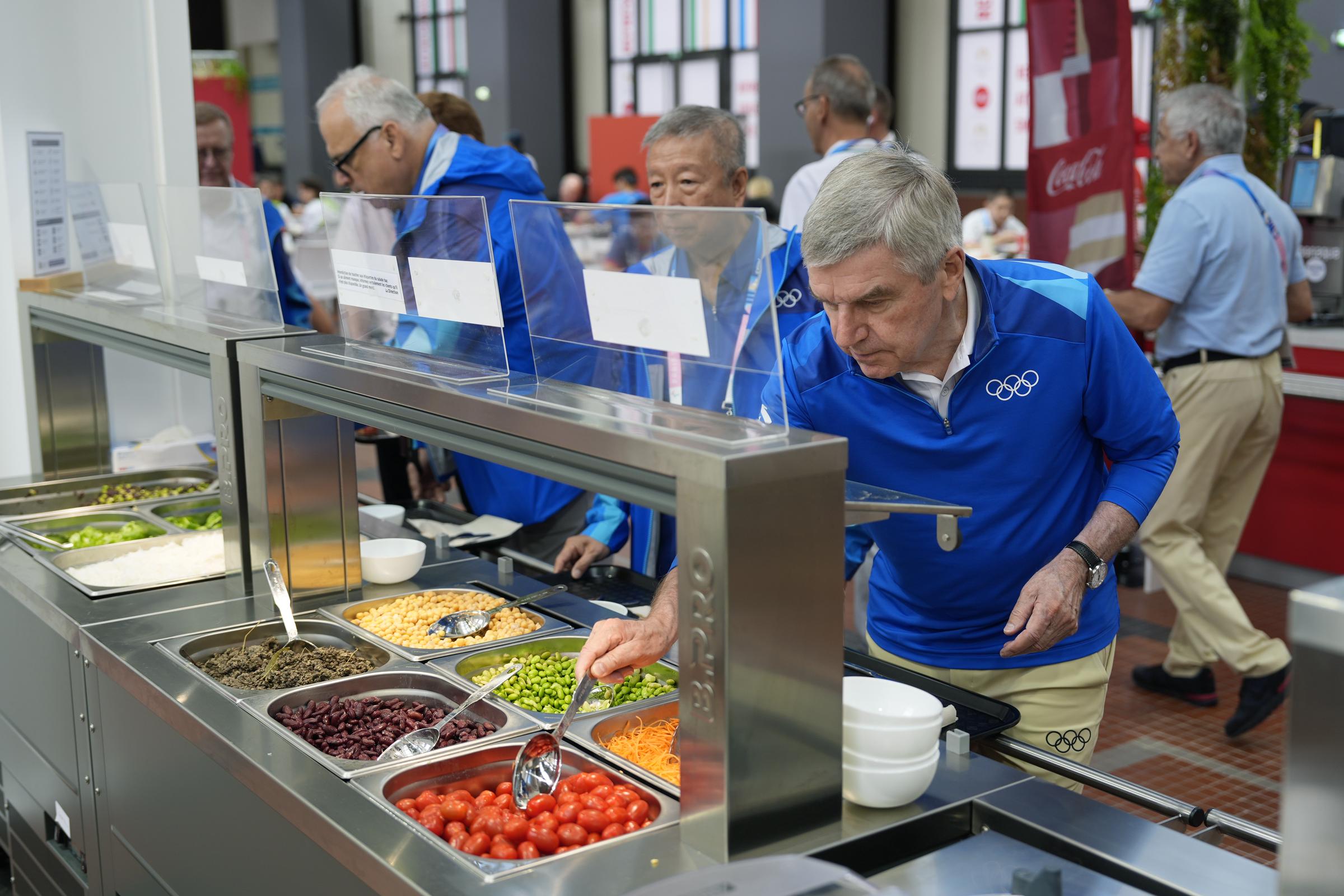
IOC President Thomas Bach at a salad bar in the Olympic Village on July 22, 2024, in Paris, France. | Source: Getty Images
A highlight of the grab-and-go area was the French bakery, which included full coffee bars. "They have every type of coffee drink you could think of," Smith noted. There was also a station where athletes could learn how to make baguettes.
Some sports teams shipped in particular food products for athletes with specific dietary needs, ensuring their nutritional needs were met. However, despite efforts to provide diverse and high-quality food options, some athletes expressed dissatisfaction with the Paris 2024 Olympics catering.
Many were expecting to experience France's renowned cuisine in the Olympic Village. However, there were reports of athletes being unimpressed by the offerings and wanting more meat on the eco-friendly menus.
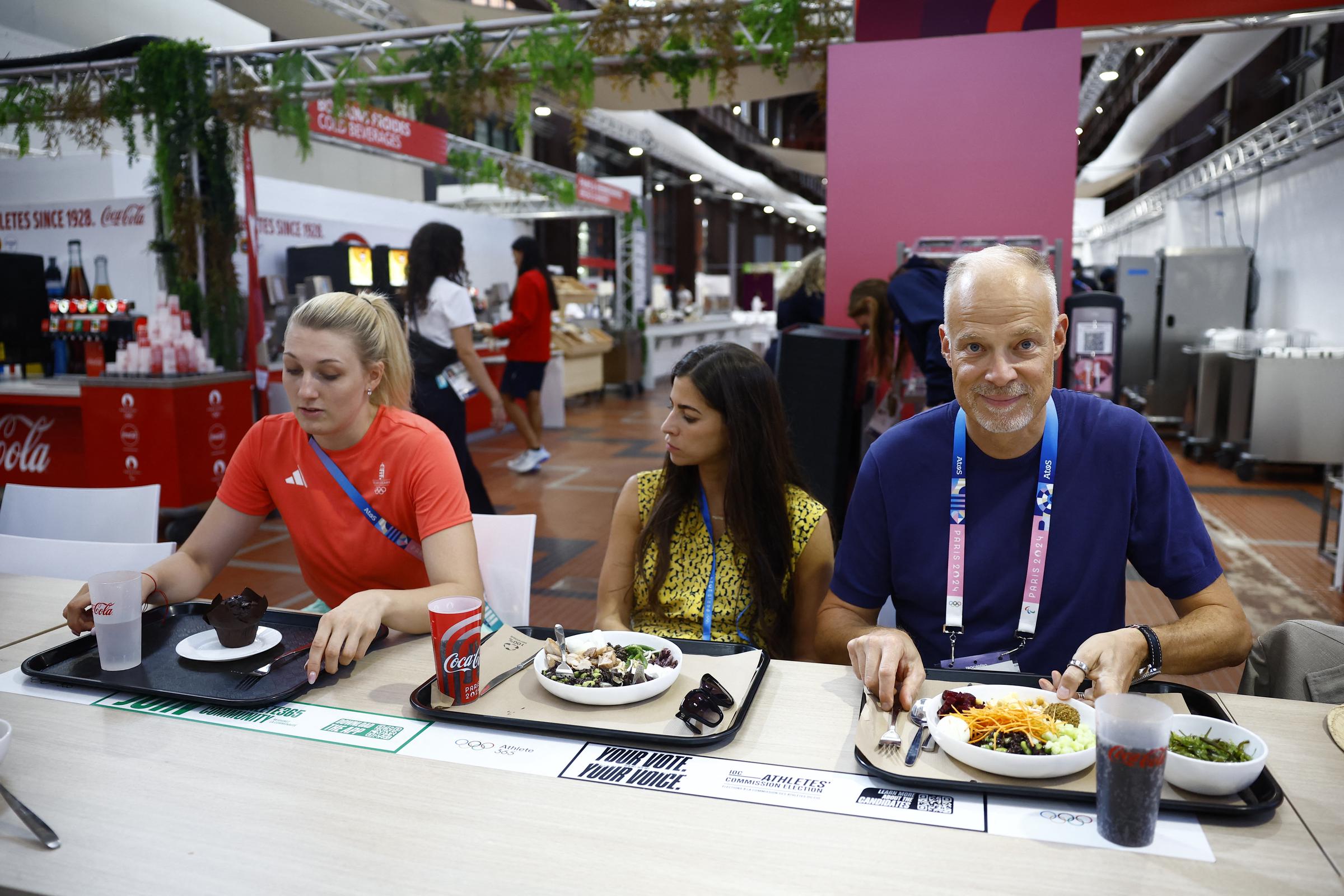
Hungary's Minister of Defense and Sport Kristof Szalay-Bobrovniczky having a meal with Fencing Bronze medalist Eszter Muhari at the Olympic Village during the Olympic Games Paris 2024 on July 28 in France. | Source: Getty Images
During a trial run at the Olympic Village restaurant, Tony Estanguet, the head of the Paris 2024 Olympics, emphasized the goal of reducing carbon emissions by offering more vegetarian food.
He assured that the organizing committee had enlisted several Michelin-starred chefs as advisors to work with their food contractors. This was meant to ensure that the dining experience did not disappoint.
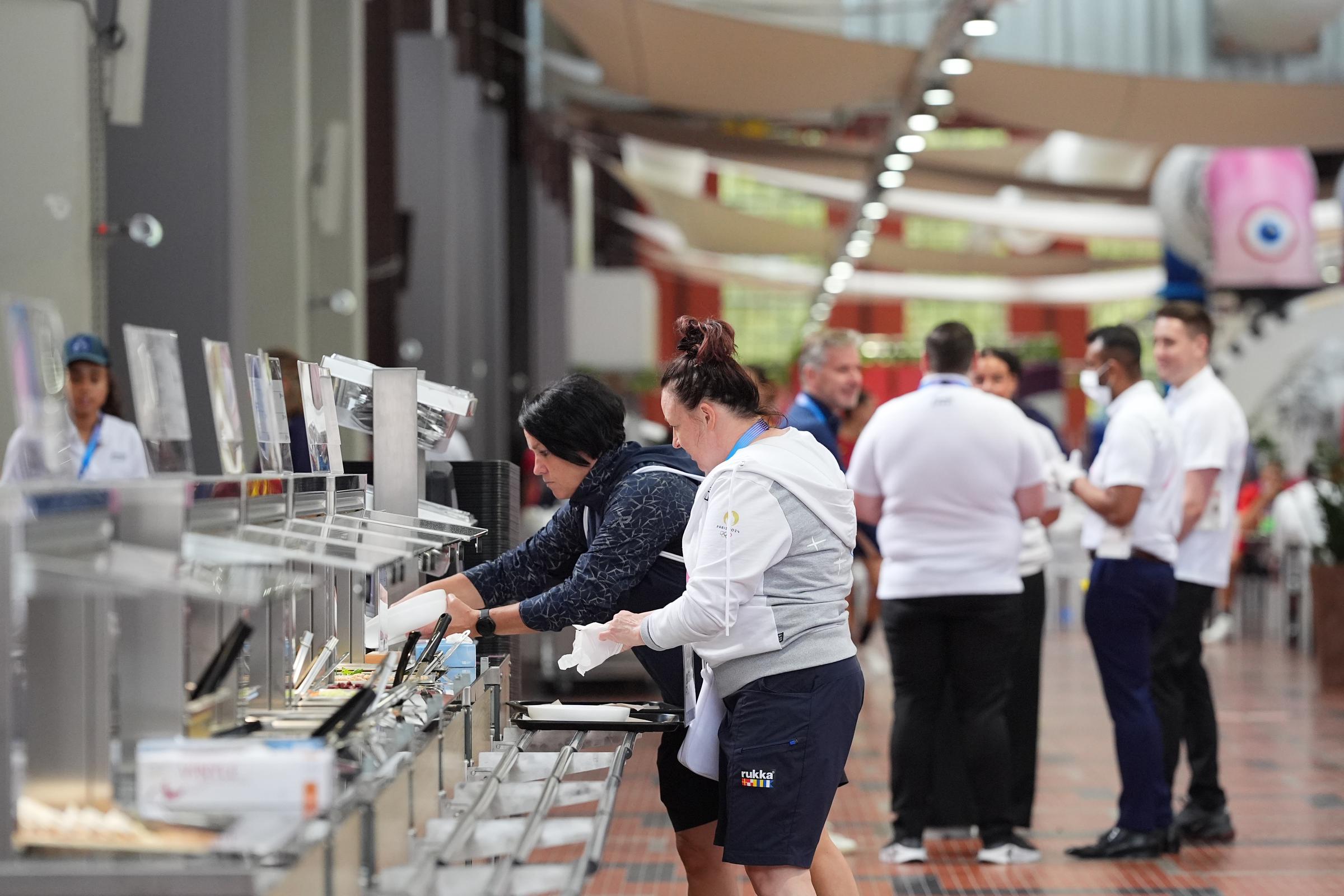
People enjoying food at a restaurant in the Olympic Village during the media open day on July 23, 2024, in Paris, France. | Source: Getty Images
However, athletes voiced their need for more substantial meals within the first few days. This included more steaks and larger portions to recover from intense competitions and workouts. American gymnast Simone Biles mentioned her disappointment with the 3,300-seat food court.
Teammate and gold medalist Hezly Rivera echoed this sentiment. She acknowledged that while French food is generally excellent, the offerings in the Village did not measure up.
Olympic 100-meter champion Marcell Jacobs of Italy and Jamaica's two-time 200-meter world champion Shericka Jackson also criticized the food. Jacobs noted that the Village was "nice," but the food was lacking. Lack of flavor and inadequate pasta servings were among the complaints.
Early feedback from British athletes highlighted issues such as the shortage of eggs for breakfast and the lack of white meat. This prompted Team Great Britain to bring in an English chef to their performance center and pack their own meals.
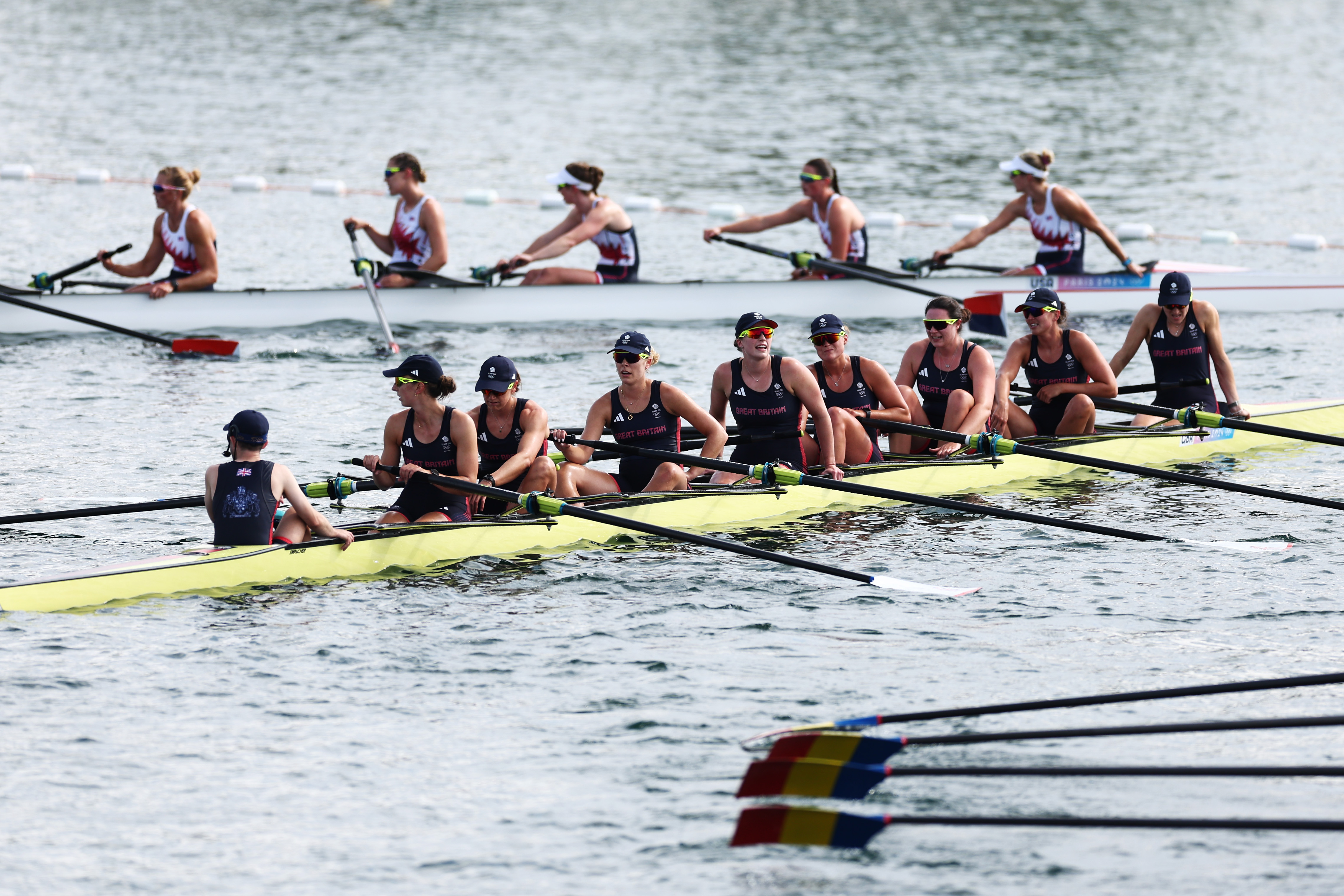
Team Great Britain reacting to winning Bronze in the Women's Eight Finals on day eight of the Olympic Games Paris 2024 on August 3 in France. | Source: Getty Images
The No-Sex Ban Was Lifted
The 2020 Tokyo Olympics notoriously imposed a sex ban in the Olympic Village due to the COVID-19 pandemic and the need for social distancing. However, this restriction was lifted for the 2024 Paris Olympics.
In light of this, Team USA took measures to promote a healthy environment for its athletes. Smith confirmed that about 600,000 condoms were distributed throughout the Paris Olympic Village.
"They are distributed and we hold them in our athlete resource center, which is a space that does it for athletes only — and obviously, they can take as they need," he said. Athletes shared their excitement on social media, showcasing the condoms that were included in their toiletry gift bags.
Canadian sailor Sarah Douglas posted a TikTok video highlighting the Olympics-branded condom packaging. She revealed blue and pink condom holders with messages such as "On the field of love, play fair [and] ask for consent" and "No need to be a gold medalist to wear it."
While the distribution of condoms promoted safe sex, there were still guidelines regarding interactions between athletes from different countries. Smith explained, "We try to avoid that."
He clarified, "It's not so much for the sex, it's more for security reasons." Athletes from other countries could meet in common areas, but Smith emphasized, "We try to keep athletes from other countries out of our residential space…out of our sleeping rooms."
Sport Teams Decided on Roommate Allocations
Each sports team determined roommate assignments in the Olympic Village. For example, Smith explained, "If there are 16 athletes on a field hockey team, we allocate four apartments. Each apartment has a certain number of beds, typically with two people in a room."
Once the allocation was set, the teams decided who would room together. "We provide them with the details of how many beds and rooms they have," Smith said. The team leaders would then create a rooming list.
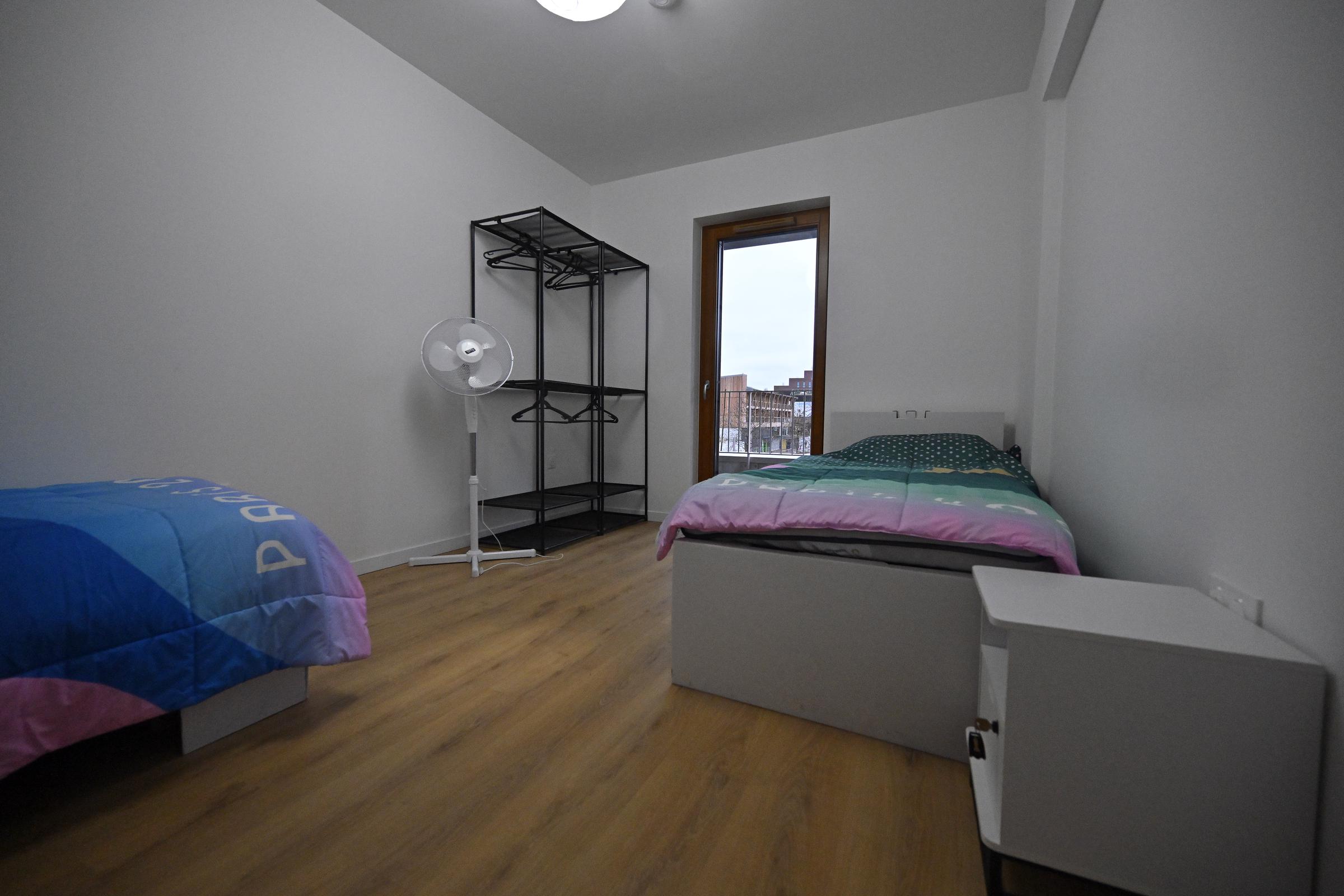
A bedroom in an athlete apartment for the Paris 2024 Olympic Games at the Olympic village. | Source: Getty Images
"The team leader gives us their rooming list and specifies who will share rooms," Smith added. "Each sport made that decision on their own," he continued. However, not all athletes were of legal age at the 2024 Paris Olympics, like 16-year-old gymnast Rivera and 17-year-old swimmer Alex Shackell.
Smith noted that in those scenarios, there was a special accreditation for chaperones. "If a team leader decided a parent needed to stay in the Village with their minor, it was possible. But it meant using a bed that could go to a coach," he said.
The arrangement depended on the team's management. Smith also mentioned strict guidelines by the United States Olympic and Paralympic Committee (USOPC) for underage athletes' rooming arrangements.
"We tried to keep minors in rooms with other minors. We avoided mixing athletes under 18 with those over 18, except in specific cases," he said.
The 2024 Paris Olympic Village rules — from roommate assignments to social media guidelines — were designed to ensure athletes' safety, focus, and well-being.
While some restrictions, like the no-pets policy and family visitation limits, could be seen as tough, in the end, these regulations aimed to create an optimal environment for peak performance.
